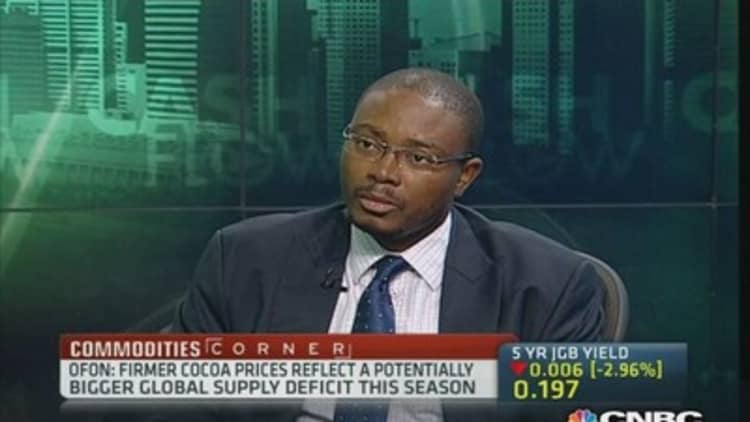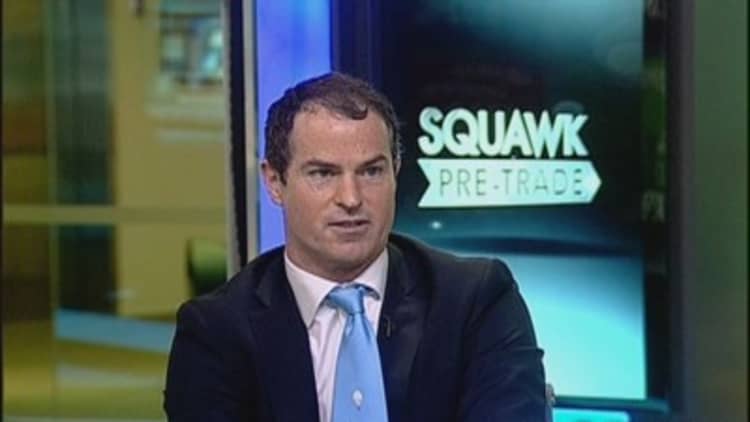The recent spike in soft commodity prices has prompted some concerns that emerging markets could be at risk of higher inflation, but market watchers are downplaying those worries for now.
Agricultural stock prices are particularly important to emerging market economies because a significant proportion of their populations live below the poverty line and are more vulnerable to higher food prices, analysts say.
The price of coffee reached a two-year high earlier this month as extreme droughts in Brazil prompted supply fears, while wheat futures traded on the Chicago Board of Trade have surged almost 23 percent since late January.
Read MoreSugar in coffee: Sweet spot for investors?
According to research house Capital Economics, even though food prices are rising in emerging markets, they are still lower than a year ago, reducing the risk of a sudden spike in headline inflation.
"The sharp increase in agricultural prices since the start of the year has awakened memories of previous bouts of food-led increases in emerging market inflation," analysts at Capital Economics said in a note Friday.

"[But] we are sanguine about the current threat. Unless global prices rise significantly further, they won't exert upward pressure on emerging-market food price inflation," they added.
Extreme weather, higher oil prices and a shift in investor focus towards commodities in the wake of global financial crisis in 2007 sparked a surge in food prices. After being almost stable for 20 years, the United Nations' Food and Agriculture Organization's food price index more than doubled between 2007 and 2008.
Read More The commodity that's set for a sweet 2014
High food prices were particularly harsh on emerging market economies and left a billion people hungry, according to independent policy think tank Oakland Institute.
Against this backdrop, a spike in the prices of some agricultural products this year is being watched closely.
The Commodity Research Bureau Commodities Index, which monitors daily price fluctuations of 19 commodities, including prices of sugar, wheat, corn and coffee, has climbed roughly 10 percent since the start of the year, while the version of the index which strips out food products specifically - the CRB Food Index - is up 19 percent for the year.

So far, the impact of rising food prices has yet to feed through to consumers. Consumer price inflation in emerging markets slowed to 4.3 percent in February from a year earlier, the lowest level since 2009, from 4.6 percent in January, according to Capital Economics.
Capital Economics flagged possible trouble spots such as Indonesia, Turkey, South Africa, Russia and Brazil.
Read More Food costs rising, but will you feel the pinch?
According to Robert Prior Wandesforde, director of Asian economics research at Credit Suisse, inflation is a "modest concern" for now. He expects food price inflation in Asia ex-Japan to accelerate to 7 percent this year from current levels of roughly 5 percent. He warned about a prolonged increase in prices citing climate change as a wild card.
"If the fear of another El Niño style weather event gets stronger, that could have a big impact on commodity prices," Wandesforde said, adding that such a development could push up inflation and trigger a policy response from central banks.
Still, analysts said this scenario was unlikely for now.
"It's something central banks could worry about as a supply shock could spread to other parts of the economy but I don't think this is keeping central bankers up at night," Tim Condon, chief economist for Asia at ING, told CNBC.


